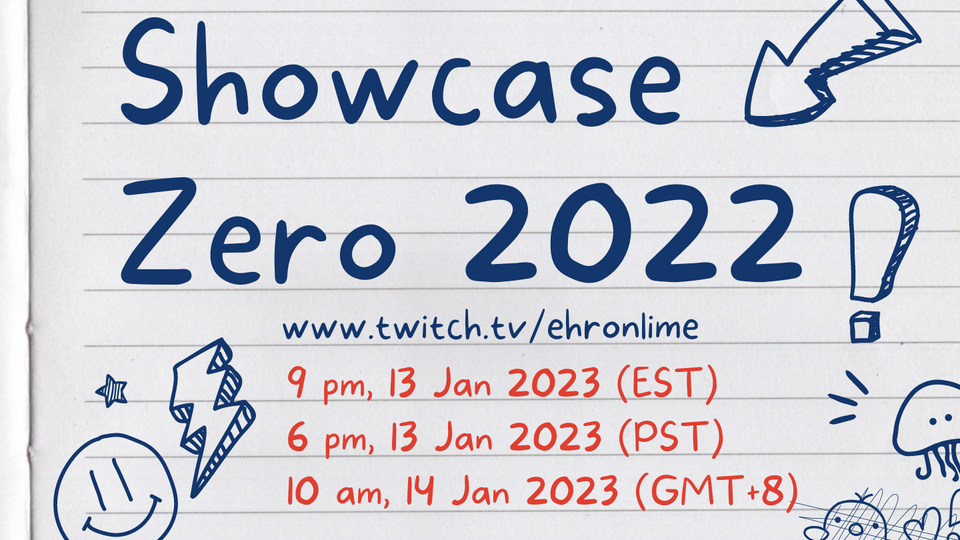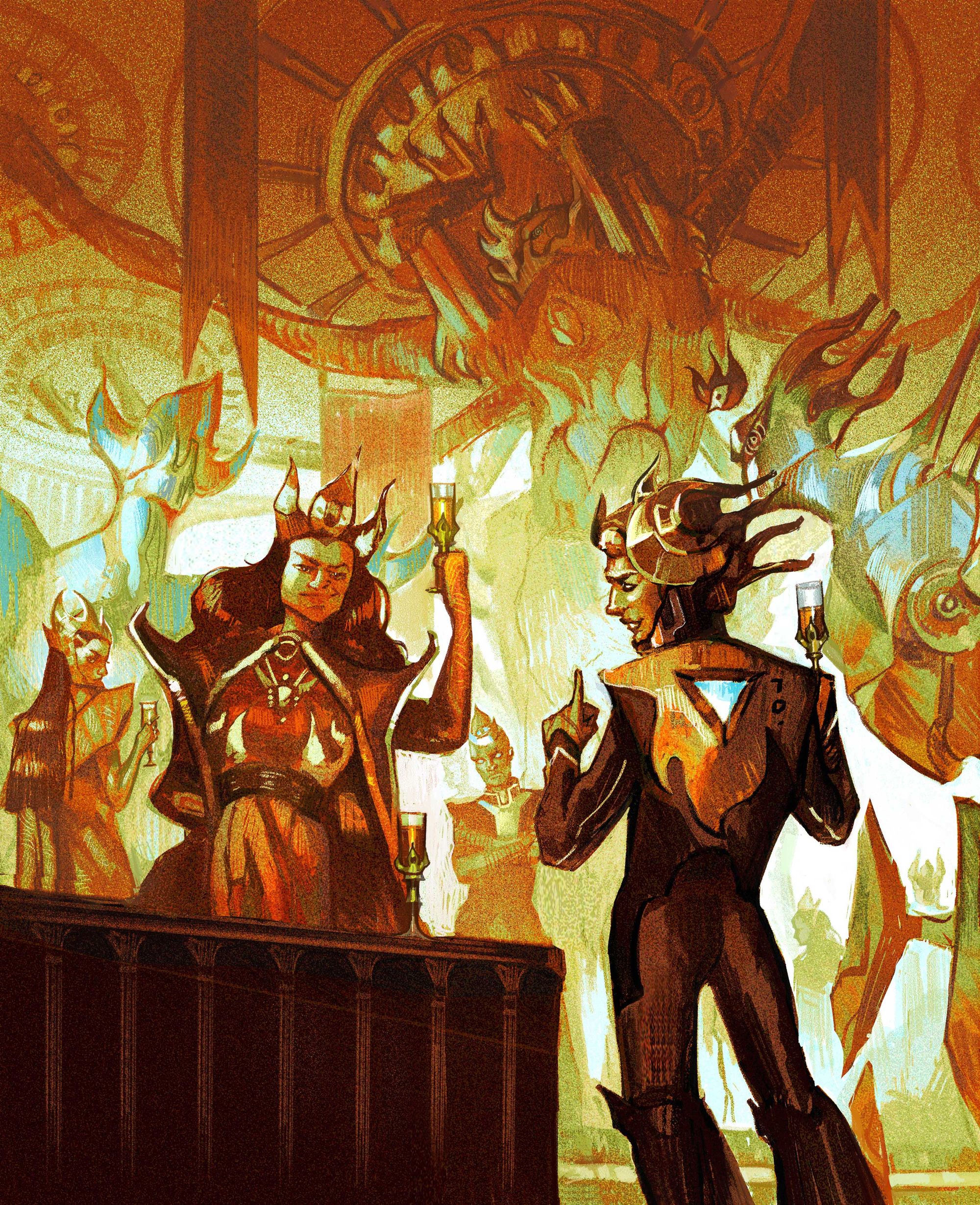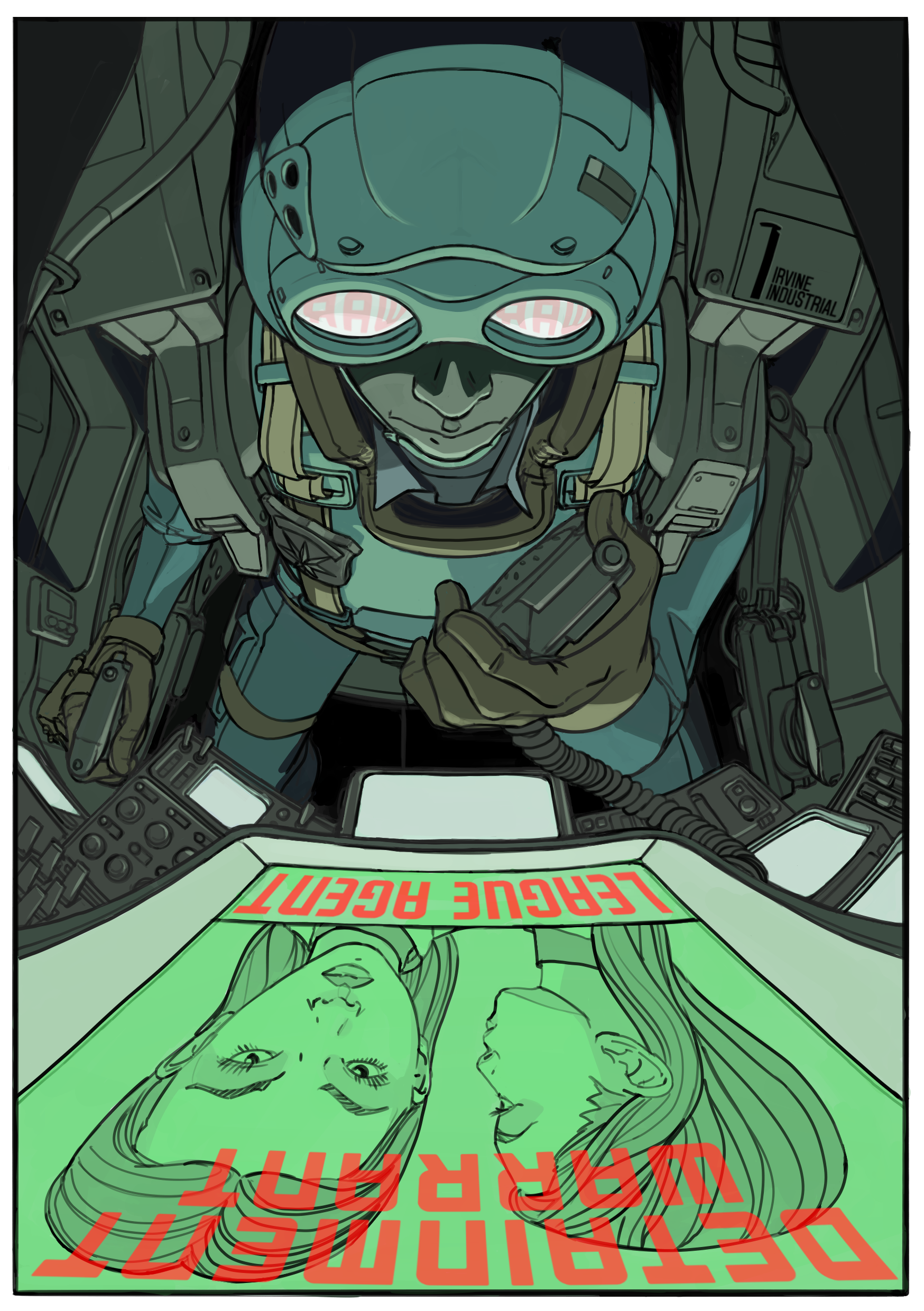January/February 2023 - Working and Responding

Hello facts and figures! Welcome to the January and February 2023 combo newsletter, delivered in March. I can't believe it's March already! I got pretty busy during the last two months, so I've been remiss with sending the old newsletter out. Here's a quick rundown on what I've been up to:
- We put together a really fun stream for Showcase Zero back in mid-January! This was a blast, and I'm really happy with how it turned out. We had several presentations from Playtest Zero regulars, talking about different game design topics related to the games they've been playtesting throughout Playtest Zero in 2022. I've been very inspired by Freeplay's Parallels events, and I wanted to have that similar kind of opportunity to showcase game works and reflection on game making by my favourite game makers. You should check it out!
- I finished up the Zero Draft for Spectres of Brocken and handed it over to Rae Nedjadi for developmental editing. This was the big thing I was working on for a bit, which was held up by several delays as I was trying to sort out my work situation and also having to deal with COVID-19 cases in the family. Mostly it was re-structuring and clarifying the playtest/demo version of the rules into a form that worked better for the book, but I did also make a couple of minor tweaks to the rules and procedures based on the additional playtesting in December and January. One was changing up "Potentials" into "Prides", inspired by the framing used in Tales from the Loop. It's still about choosing a skill that your Pilot is good at or is invested in developing, but framing it in a more personal manner, including re-writing the Potentials as "I want/I am" statements e.g. "I Can Always Hit My Target" instead of "Deadeye". The others were mainly cleaning up procedures of when and how to fill in certain bits of the Pilot Sheet as you moved from the Academy to the Conflict Phase.


- Kinda related to the delays to Spectres of Brocken work mentioned above, I've completely fallen off on Dungeon23 progress. Though I still would like to do more work on fleshing out Legrane's Lost Island this year, I think uncoupling it from the daily exercise is the healthy choice for me at this point.
- I've also gotten to a solid template for Spectres of Brocken's World Tendencies (my term for the game seeds/pre-written settings) and I've been working with talented artists to get illustrations for each of those World Tendencies. Below are the illustrations for The Fire Quartz Crown - by Amita Sevellaraja, and Orbital Century - by Alex Connolly. I've also been quietly working with some guest writers on additional World Tendencies, and I'll have more to announce on that front later.


- I did some playtesting for updates to A City of Shining Stars (in response to hearing it played and discussed on the incredible Team Up Moves podcast, with special guest Jeff Stormer) and BLADEbreaker at Playtest Zero. I'll fully admit that I didn't do any multiplayer playtesting of A City of Shining Stars' card system beyond doing several test draws by myself, assuming 4 players. So when I listened to the episode and noticed them hitting parallel after parallel and that aspect also got brought up in the post-game discussion, I knew that needed to be tweaked since I didn't intend it to be that way. I also wanted to give an opportunity to speed up the game by drawing more cards, and also potentially give another prompt for the turns, so I added an additional card to be drawn during the Event set-up which acts as a prompt for the location to tie it closer to the city's spaces in addition to the people. I'm still not quite happy with where it's at, so I'll be returning to this as I re-work the Event resolutions.
- For BLADEbreaker, I was mainly interested in seeing how viable non-violent approaches would be for missions, so I asked the players to focus on that and limited the playbook selection to the Coordinator, Infiltrator, and Saboteur that hadn't been playtested yet. It went OK, but players definitely felt under a lot of pressure since they were missing a bunch of tools and affordances from Forged in the Dark games that would usually enable them to run these sorts of schemes successfully - not having a catch-all resistance roll to fall back on and no easily available flashbacks seemed like really big hindrances. I also haven't really provided a lot of tools in the playbooks that help in those scenarios, so I'm having a good look back at the playbook design in addition to the general system design to see what affordances I can provide for that.
In and around game design work, I've been learning how to make games in Unity as part of my game teaching work - which has been a lot of fun - and this week I started playing Phantom Brigade. Oh boy. If ever there was a game laser-targeted to pull me in, this is it. It's only missing some multi-use cards.
Phantom Brigade is a squad-based tactical combat strategy game reminiscent of both X-COM 2 and Battletech. There's mech-customization, there's running around in a carrier on the strategy layer dealing with different missions and events while dodging enemy patrols, there's that feeling of being the scrappy underdog rebels as you work to overthrow the empire colonizing your homeland. And more importantly, there's Combat Gantt Charts as you set up all your moves on an advancing timeline.

As cool as it is (and it is a very cool game), why am I bringing this up in the newsletter? I've not delved deep enough into the game to come up with any cool design methods or tricks to discuss here (though if you're interested in that, in the last Favourites of 2022 newsletter I briefly touched on the way Marvel's Midnight Suns turns movement control into a resource to manage in a tactics game while making it simultaneously a non-factor some of the time because all your actions auto-move you. It's a really, really smart move (hah) and I think it has some interesting potential applications elsewhere).
However what clicked for me as I played the game was how much of my creative process relies on responding to other games and other people making/playing games - either inspired by, in conversation, with or in spite of. This is the most obvious take of all time, like yeah of course all art is made in conversation with other art, but I've been so in "development" mode lately - iterating on, refining, tweaking games, and I've been so focused on looking at my own work and seeing where I could improve it rather than looking to other work to see how I can be refreshed and inspired by them.
After two nights of playing Phantom Brigade, my brain has been buzzing. Ironically, it's been buzzing with ideas of how to polish up BLADEbreaker haha. There's a lot of stuff that I've been blocked on with BLADEbreaker's strategy layer and campaign play design, and seeing Phantom Brigade's take on their strategy layer (and contrasting it with Battletech/XCOM-2's) has been a huge kick in the butt to get going on my own work. Some of it is definitely in an "oooh that's a cool way to do it" way, but equally also "here are the limits of videogame design and I have ideas on how I'd do it differently for a tabletop game".
I also realized that the tweak to Spectres of Brocken's Potentials came from listening to Friends at the Table play Tales from the Loop, and the changes to A City of Shining Stars are definitely responding to hearing it played. Also, going to Playtest Zero every two weeks and seeing cool shit that people have been playtesting has definitely put a lot of ideas in my brain. Those are all different categories of responses, but they did help me think about and contextualize what I've been needing to do to get re-energized making games. I need to "talk with people". Focusing on developing and refining my own stuff often feels like I'm "talking with myself", or at least a past version of myself. I guess this is also why I'm such a huge proponent of regular playtesting. I need to be in conversation with people as I make games, whether directly talking with friends about games or playing something someone I don't know has made.
With that realization and affirmation, I'm off to go make some pointed responses about how a strategy layer for a game like BLADEbreaker should work. I hope that you have a good time responding to and with games as well.
Responsive regards,
Aaron
